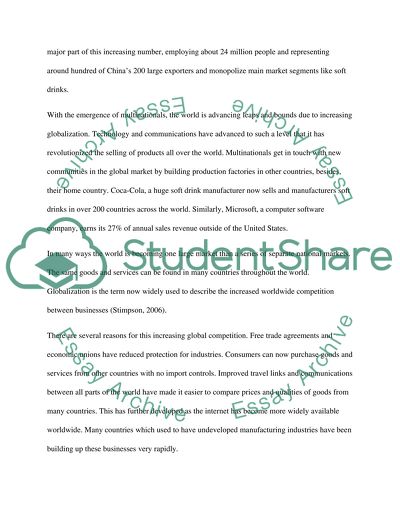Cite this document
(“International Business Essay Example | Topics and Well Written Essays - 3000 words - 4”, n.d.)
Retrieved from https://studentshare.org/environmental-studies/1418979-international-business
Retrieved from https://studentshare.org/environmental-studies/1418979-international-business
(International Business Essay Example | Topics and Well Written Essays - 3000 Words - 4)
https://studentshare.org/environmental-studies/1418979-international-business.
https://studentshare.org/environmental-studies/1418979-international-business.
“International Business Essay Example | Topics and Well Written Essays - 3000 Words - 4”, n.d. https://studentshare.org/environmental-studies/1418979-international-business.


